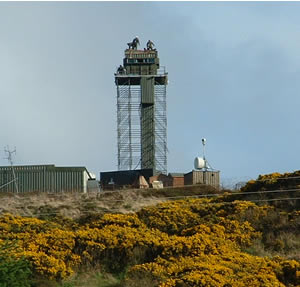Ambulance men and their families had to cope with the difficulties and vagaries of a divided society, not just at work but at home too.
For the first six years of our marriage we lived in the North end of town which then was predominantly Protestant: we Catholics were very much in the minority. None of this mattered from our point of view and we got on very well with our neighbours, despite the frequency of IRA actions in our town.
One evening I was carrying my eighteen-month old son down the stairs when the landing window exploded and a missile entered and lodged in the carpet of the stair I had just walked on. I contacted the police who were willing to speculate on a certain individual as the possible culprit. It was a lead pellet from a gun: in fact a double-slug. Whether he was ever arrested and questioned, I know not but he was surely never charged. That was an end to the affair.
Except that years later we got to personally know the alleged culprit. Indeed we became friends. He had only been seventeen at the time and was probably unwillingly sucked into the Troubles. He was not to know then that we were part of the solution and no part of the problem.
Meanwhile my husband as part of an Ambulance Crew continued to minister impartially to victims of all sides of the conflict, as well as to the ordinary sick and ill of our community.
The Troubles were all but over in the early 1990s when it was announced that a new regime would prevail in the employment of Ambulance Crew. Those that had ‘soldiered’ through the worst of times now had a magnifying glass applied to their medical and personal history.
If you had had time off for medical reasons this was assumed to be proof that you were incapable of doing the job properly. If you now required spectacles where earlier you did not, was that not proof positive that you were no longer capable of being an Ambulance Man?
In a clean sweep more than a dozen men were forced into early retirement. No ‘Golden Handshake’, no ‘added years’, no reward for the endless trauma suffered up to that point.
A brusque ‘Thank you, but No! Thank you’ and they were out!
What does THAT tell you about our society?
…. End ….
